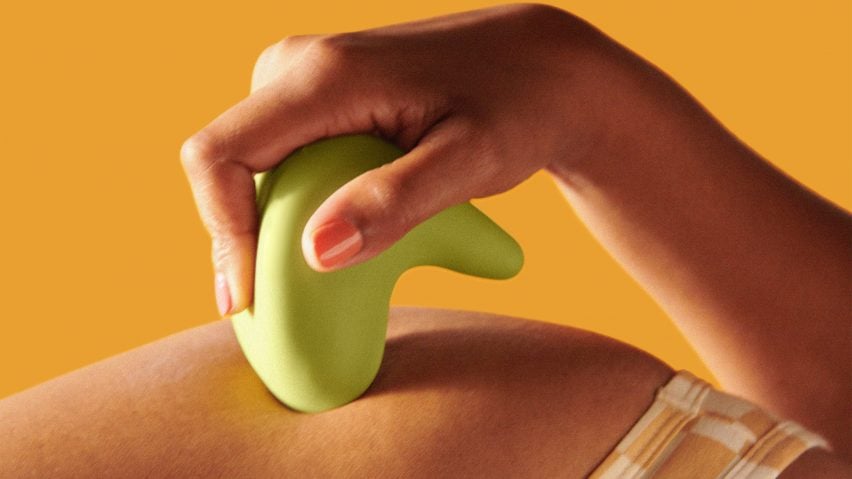
Kiwi intends to "bridge the gap between sex toy and medical device"
US company The Pelvic People and designer Nienke Helder have produced Kiwi, a multipurpose vibrator for people who experience pain during sex, which has been shortlisted for the Dezeen Awards 2024.
Kiwi, which can be used as both a vibrator and massage tool, was designed to eliminate entry pain and help people enjoy sex. The product has a non-phallic, curved shape with a subtly waved surface to accommodate anatomical variety, and was designed to invite shallow penetration.
Its ergonomic form facilitates different massage methods, with two vibration motors to allow for both blood flow and stimulation.
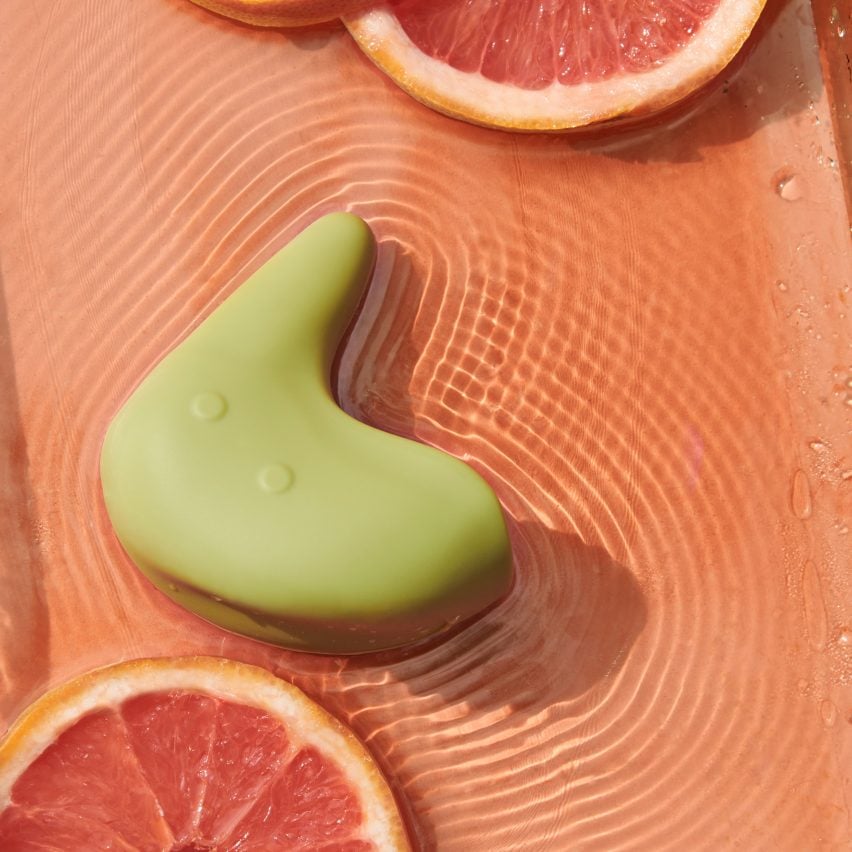
Prompted by research and observation into women's experiences with painful sex, Kiwi was developed alongside more than 90 pelvic specialists.
"We were confronted with the reality that we needed to take a bio-psycho-social approach to solve a systemic problem – a human problem – without obvious answers," The Pelvic People CEO Emily Sauer told Dezeen.
"Seventy-five per cent of women will have painful sex during their lifetime, a challenge often ignored and with limited, antiquated at-home treatment options. Kiwi was designed to bridge the uncharted gap between 'sex toy' and 'medical device'."
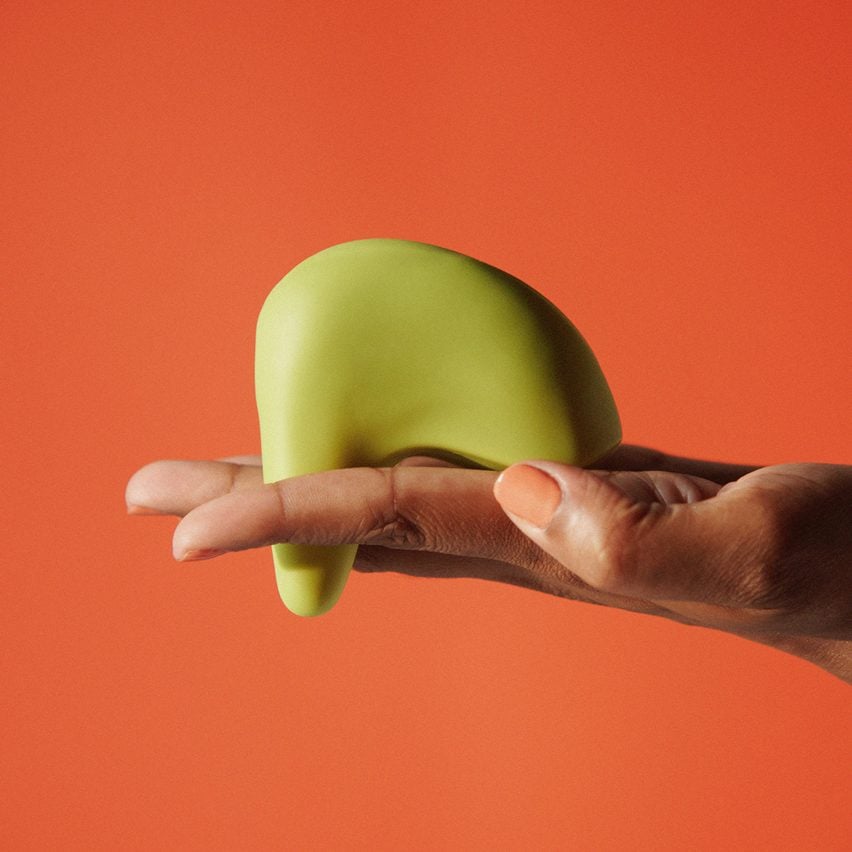
Beyond the intention to promote pleasure during sex, Kiwi also hopes to contribute to healing and recovery from negative sexual experiences.
"Kiwi breaks the fear-induced pain cycle – bringing control and enjoyment into the healing process," said Sauer. "It is the missing piece in a clinical toolkit that can often feel like punishment; Kiwi makes progress feel good."
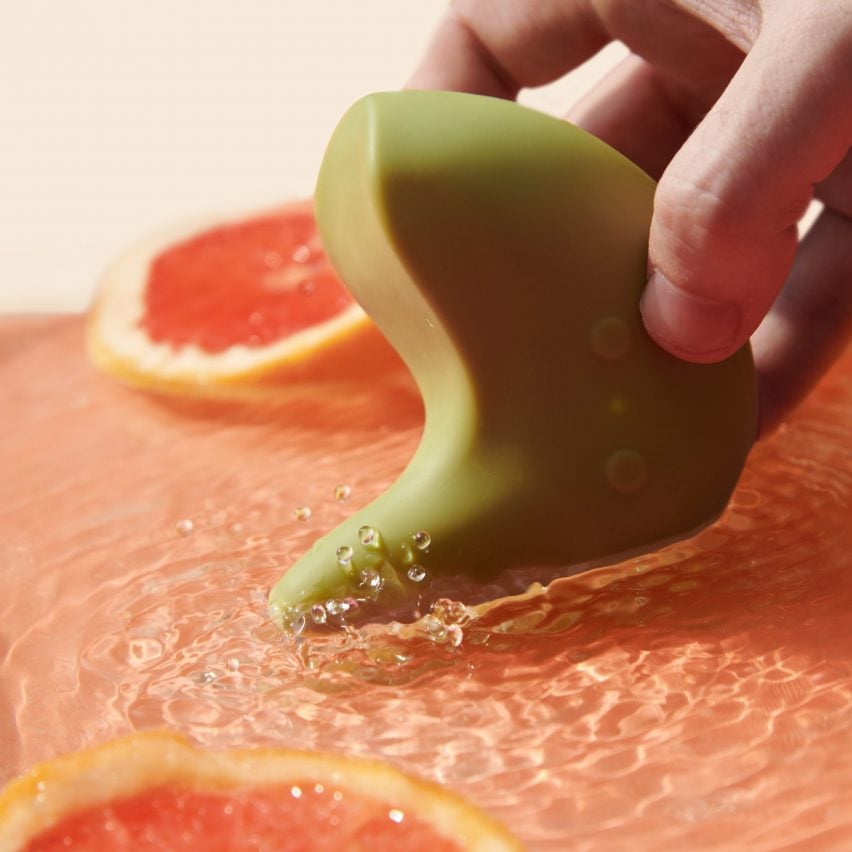
The company also hopes the vibrator will help create positive sexual experiences.
"It takes bravery for people to make a first step toward their pelvic health," Sauer said.
"When tools orient around one purpose – often penetration – and our body doesn't meet the demands imposed by that device, we're often left deeply disappointed in ourselves – not the device."
The Pelvic People also hopes to highlight the lack of services for pelvic health in the US.
"It's is a missing piece of the systemic puzzle. In the US, for every 4,000 people who need help there is only one pelvic physical therapist available," said Sauer.
"For folks who can't get to a pelvic specialist for geographic or financial reasons, Kiwi is an accessible and trustworthy place to start."
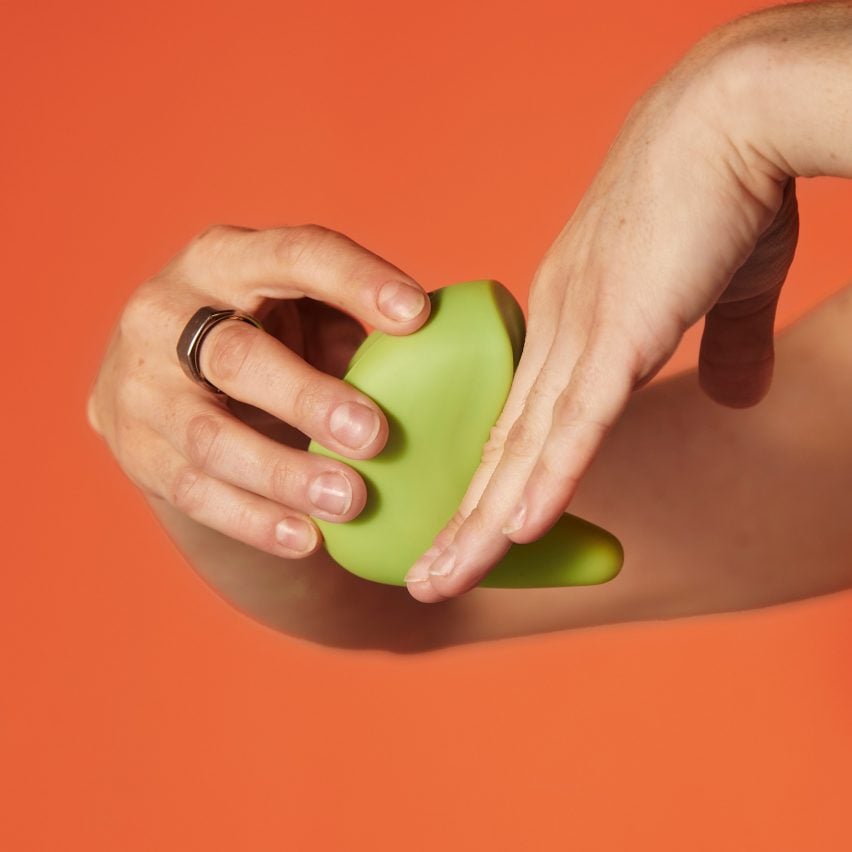
The tool comes with educational content, including guided videos, to promote conversation and knowledge about health and sex.
"It would be irresponsible for us to hand someone a user manual solely with directions on how to turn a product on and off," said Sauer.
"The lack of education around pelvic health has already stripped an entire population of our ability to make empowered decisions about our health. Knowledge is power."
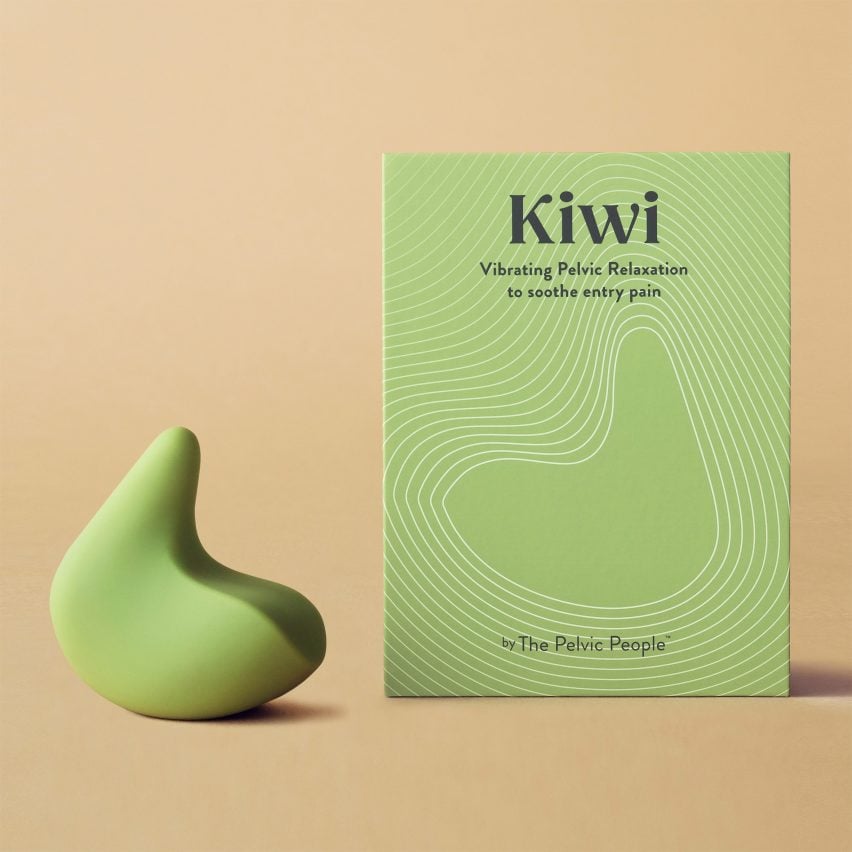
The Pelvic People is working to continue to produce products that can aid vulnerabilities surrounding sex.
"While we do have future products in the pipeline, we're also dedicated to contributing to the scientific community with validated research," Sauer said.
Other sex-positive products that have been featured on Dezeen include a vibrator that doubles as an artificial insemination device and a massager for women going through menopause.